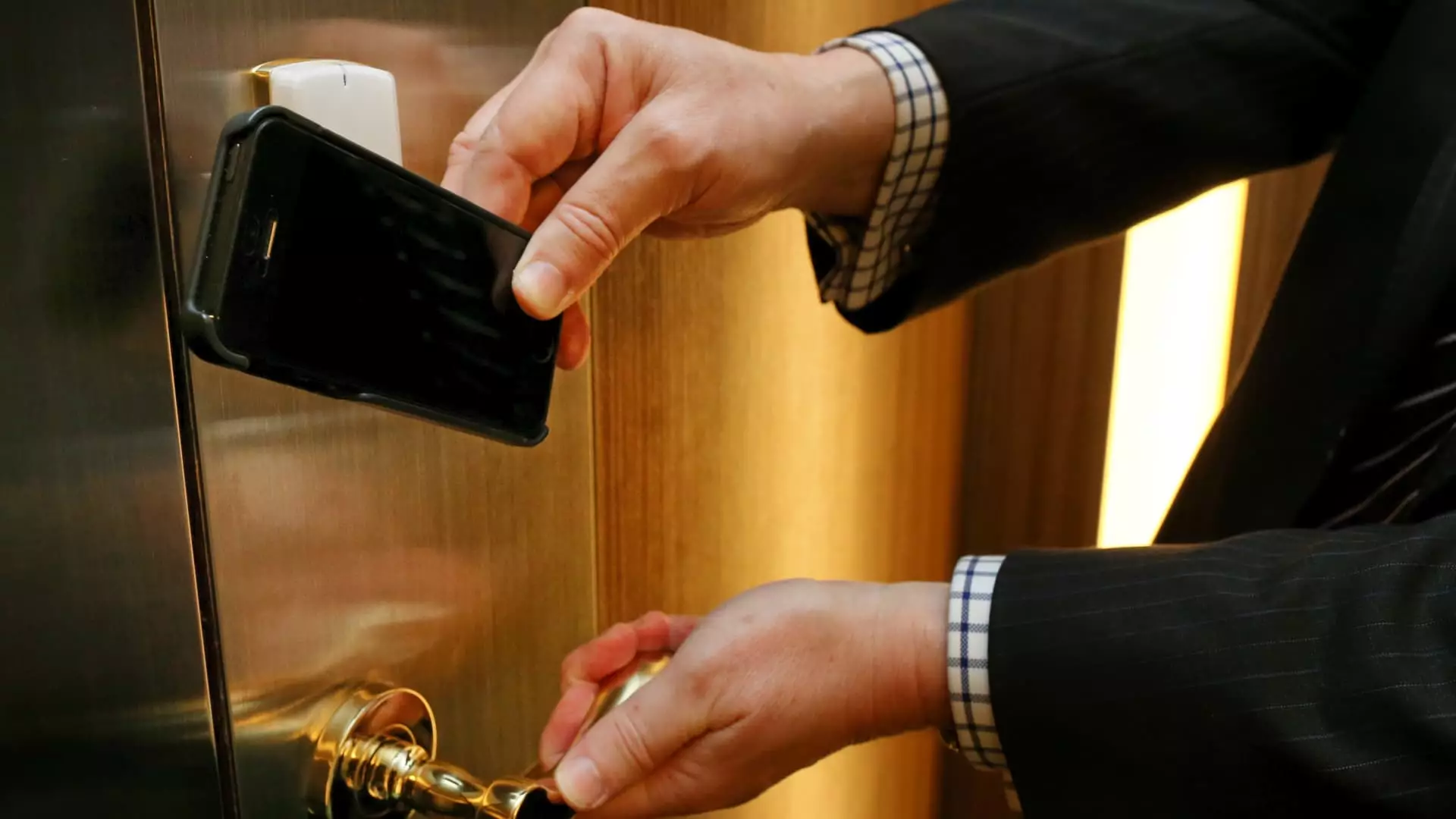The hotel industry is currently going through a significant transformation, with many hotel chains opting to replace traditional plastic room keys with digital alternatives such as Apple Wallet and Google Wallet apps. The push towards digital options has been largely influenced by the ongoing Covid-19 pandemic, which has accelerated touchless trends due to concerns over hygiene and safety. Additionally, cybersecurity issues surrounding plastic hotel key technology have also been a driving force behind this transition.
While major U.S. hotel chains have had the capability to offer digital keys for some time, the involvement of tech giants like Google and Apple has further propelled this shift. These companies are now providing hotels with the technology to save guests’ room keys to their wallets, allowing them to access their rooms simply by using their smartphones to tap a reader near the door handle. For example, Hilton Hotels has introduced its Honors app, enabling guests to check in and use their room key through their smartphones. The implementation of this technology has been evident in properties like the 119-room Harpeth Hotel in Franklin, Tennessee, a Hilton property, where guests can check in digitally and store keys in their Google or Apple wallet app.
One of the key advantages of digital keys is the convenience they offer, with guests being able to use their smartphones as keys. While the shift towards digital keys seems inevitable, some security experts warn that new lock methods can introduce fresh security challenges for hotels to manage. Issues such as vulnerability to hacking and the need for security control policies like multifactor authentication can pose challenges for both guests and hotel operators.
Despite the potential benefits of digital keys, research indicates that the adoption rate among hotel guests remains relatively low. Data from J.D. Power shows that only a small percentage of guests actually use digital keys during their hotel stay, with many still preferring traditional plastic key cards. Furthermore, while hotel chains may be keen to implement digital key systems, the cost associated with equipment, installation, and maintenance can be prohibitive.
The transition from plastic to digital keys represents a significant shift in the way hotels operate. While digital options offer enhanced security and convenience, challenges remain around ensuring that these systems are foolproof and easy to use for guests. It is clear that while digital keys may be the way of the future, some guests may always prefer the tactile experience of a physical key card.
The race to replace hotel room keys with digital options is well underway, with both opportunities and challenges on the horizon. While digital keys promise enhanced security and convenience, ensuring a smooth transition and managing guest preferences will be essential for the success of these new technologies in the hotel industry. Whether guests will fully embrace digital options or continue to rely on traditional key cards remains to be seen, but one thing is certain – the landscape of hotel room access is rapidly evolving.

